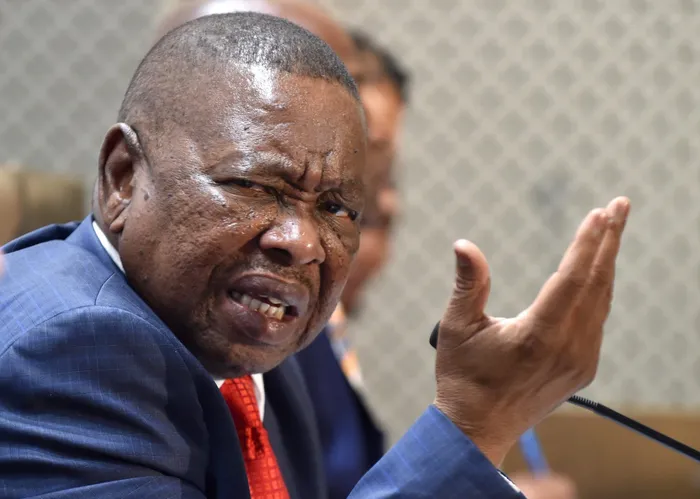Students lay blame for protests at Blade’s door

Minister of Higher Education, Science and Technology Blade Nzimande. Picture: Oupa Mokoena/ African News Agency (ANA)
Cape Town - The Department of Higher Education and Training’s “dismal failure to uphold agreements” expected to prevent student protest has led to instability at most tertiary institutions, the SA Union of Students said.
In January, Minister of Higher Education, Science and Technology Blade Nzimande, joined by the National Student Financial Aid Scheme, briefed the media and made several announcements, among which was that funding decisions would be released on February 6.
It was also stated that no funded student with debt would be excluded from registration or accommodation.
However, this has not been the case at a number of universities, including UCT, the University of the Western Cape and the University of Pretoria.
“The union flagged and bemoaned the planned late release of funding decisions, warning it would send the sector into a pandemonium.
“Regrettably, the scheme didn’t meet their own commitment.
“As we speak, over 200 000 students are in a state of limbo, not knowing whether they have been funded or not – either their statuses are awaiting evaluation or their appeals haven’t been adjudicated,” said the union’s president, Yandisa Ndzoyiya.
He said this was a crisis for poor students and the working class, who were awaiting funding confirmation and had lost their places to students who could afford to pay for their own studies.
“As we speak, thousands of students are being wrongfully financially excluded by NSFAS and universities, whilst having met the pass requirements.
“The department notes, agrees and is aware that the students are being wrongfully excluded, yet up until now it’s mum,” said Ndzoyiya.
He said the union fully supported the student protests and called on more to follow.
“All these challenges lead us to but one gloomy conclusion: the Department of Higher Education is dismally failing to lead and co-ordinate the sector. They merely and shamefully play an elusive godfather role, at best useless and ceremonial,” said Ndzoyiya.
The department and NSFAS, in consultation with the union, had agreed on a R45 000 per annum cap on accommodation costs.
However, this had affected some students negatively, as it was apparently below some institutions’ geo-economic rates, meaning students would have to top up accommodation fees.
“Based on our assessment of the student accommodation landscape, and the minimum standards, it was evident that this could be achieved within the said cap.
“We, however, now note the collusion of university officials and private student accommodation service providers to ridiculously inflate student accommodation prices to even R90 000,” said Ndzoyiya.
Nzimande said they had met with Universities SA on Friday regarding the concerns and resolved to establish a committee comprising the department, Universities SA and the vice-chancellors of the affected institutions to consider solutions for those impacted by the R45 000 cap.
“The committee will meet urgently next week to look at cases and practical solutions.
“Concerns were also raised about the application of the NSFAS eligibility criteria, which required students to have an overall 55% pass rate.
“NSFAS clarified that new eligibility criteria would apply prospectively in 2024.
“All students, whether they owe the university or not, must be given their academic records, either for the purposes of pursuing employment opportunities or further study,” he said.
Cape Times
Related Topics: